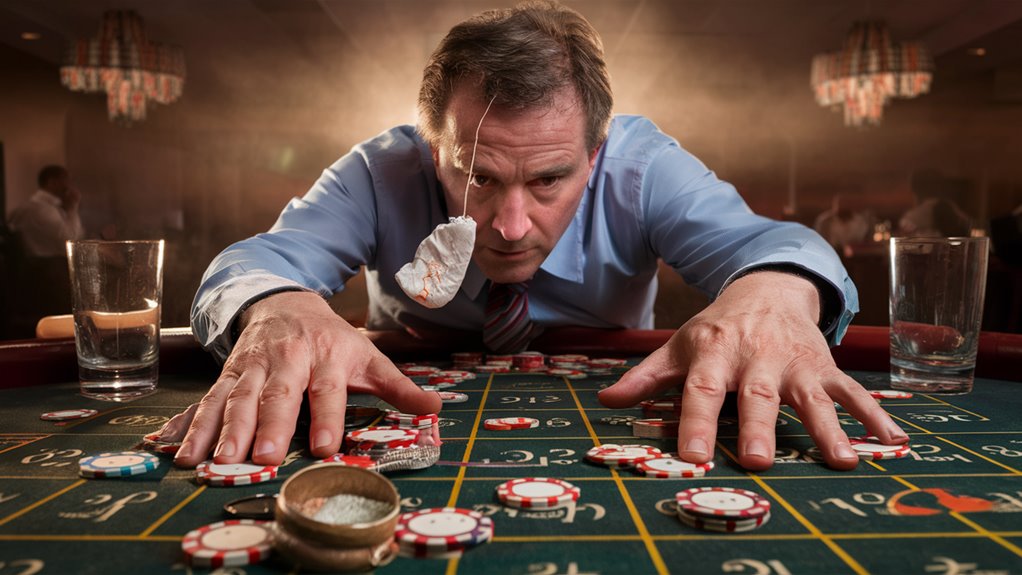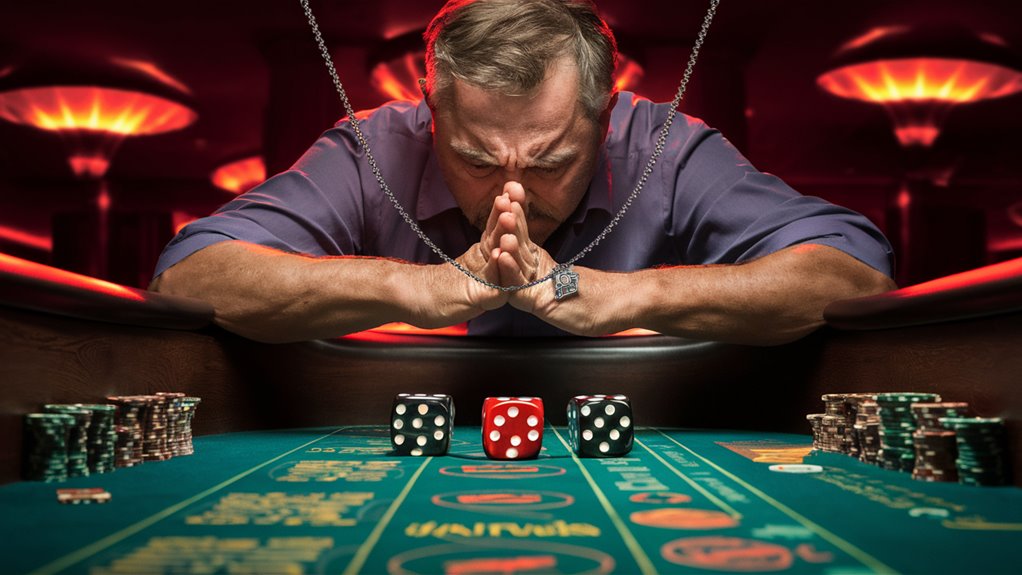
How Gamblers Think to Keep Taking Risks

Memory Tricks and Mind Games
Problem gamblers use strong mind tricks like selective memory, remembering wins over losses, giving the illusion that gambling pays off more often than it does. 토토사이트
Feeling in Control and Seeing Patterns
Compulsive gamblers feel they can control random events by seeing fake patterns, which keeps them playing despite losses.
Mental Shields
The gambler’s mistake and confirmation bias reinforce beliefs in luck, making these false ideas stronger.
Group Effect and Identity
Problem gambling seems normal due to group pressure and identity, making it harder to recognize negative patterns.
Trying to Win Back Losses
Gamblers often try to recover losses, justifying further bets despite continued losses, exacerbating harmful gambling habits.
Common Mind Tricks in Gambling
Selective memory bias sustains gambling habits by emphasizing wins. Mind games manifest as recalling old wins as proof of skill, alongside superstitions about gambling outcomes.
The Feeling of Control in Gambling

The illusion of control leads gamblers to believe they can influence outcomes with routines and superstitions.
Trying to Win Back What’s Lost
Loss chasing drives gamblers to bet more after losses, hoping to recover funds quickly, often leading to further losses.
Group Effect and Who You Think You Are
Group pressure and identity shape gambling behavior, promoting a cycle where risky betting feels justified.
Mind Games in Gambling
Mind games like confirmation bias and the gambler’s mistake sustain gambling by distorting risk perception and reinforcing false beliefs. Arc-lattice Bets: Interlacing Curved Insights for Sweeping Table Shifts
Getting Free of Excuses
Gambling excuses act as mental barriers, sustaining problematic betting. Addressing these requires accurate record-keeping and challenging false beliefs with factual probabilities.
Steps to Stop Excuses
- Identify gambling justifications
- Review evidence against them
- Replace false beliefs with factual odds
- Regularly assess real gambling outcomes
Consistent self-awareness and factual understanding of gambling odds aid in resisting cognitive biases and maintaining clarity in decision-making.
